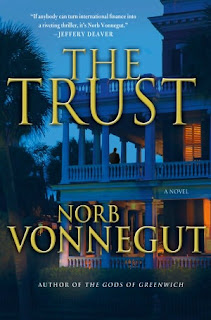 His crime fiction series set in the Spanish city of Valencia - his adopted home - features Chief Inspector Max Cámara of the Spanish National Police. The first novel in the series, Or the Bull Kills You, involves a murder in the complex and tightly-knit bullfighting community.
His crime fiction series set in the Spanish city of Valencia - his adopted home - features Chief Inspector Max Cámara of the Spanish National Police. The first novel in the series, Or the Bull Kills You, involves a murder in the complex and tightly-knit bullfighting community.Webster applied the Page 69 Test to the second novel in the series, A Death in Valencia, and reported the following:
Page 69 is the opening of chapter ten. Max Cámara is walking the streets of Valencia, his world having - literally - fallen down around him. The poorly-built block of flats where he lived collapsed the day before, killing some of his neighbors (this is not uncommon in Spain). He is homeless and has lost most of his possessions. His love life is in ruins and he’s wondering whether to even carry on as a policeman. To sum up, his life is a mess.Learn more about the book and author at Jason Webster's website and blog.
In this state of shock, he buys a new charger for his cell phone before heading off to inspect the flat of an abortionist who has recently been kidnapped. It’s a high profile, very political case and Cámara has been taken off the murder investigation he was working on in order to take part. The Pope is about to visit the city, and the forces of liberalism and conservatism are at loggerheads. It seems as though the conflicts that brought the country to civil war in the 1930s are still there, the wounds still open.
The page is very representative of the book as a whole: the sense of place - the streets of Valencia on a hot, sweaty July morning; the dualistic conflict at the heart of so much of Spanish politics; the tensions within Cámara himself as he tries to reconcile his outer life with the inner questions that dog him, and the shock and bewilderment that comes as everything he has clung on to in his adult life - everything that has given him a sense of identity - has been taken away from him. In the end he has to search inside himself to discover who he really is.
My Book, The Movie: Or the Bull Kills You.
The Page 69 Test: Or the Bull Kills You.
Writers Read: Jason Webster (September 2011).
--Marshal Zeringue




















